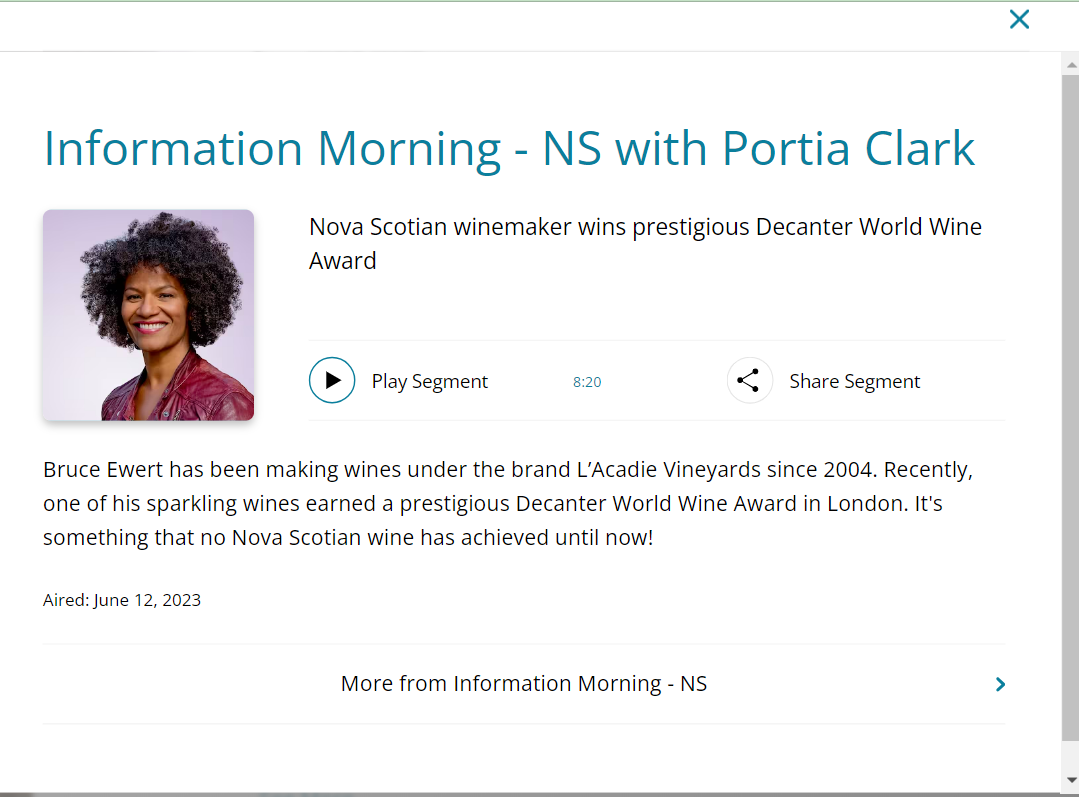L'Acadie Vineyards Blog
Welcome to the L'Acadie Vineyards blog and winery news
Prestige Brut in the news - CBC Info Morning
We chatted with Portia Clark on CBC Information Morning about our Gold medal win for Prestige Brut Estate at Decanter World Wine Awards. Listen to CBC Info Morning segment
Gold at Decanter World Wine Awards
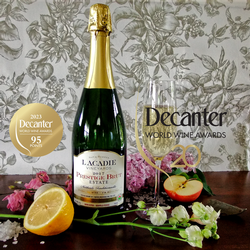
We are proud to announce that Prestige Brut Estate 2017 was awarded Gold and 95 points at Decanter World Wine Awards in London this week. First-ever Decanter gold for Nova Scotia! It is the fourth consecutive vintage of Prestige Brut Estate to win awards at Decanter, adding to a prestigious list of international awards including early vintages winning at Effervescent du Monde in France.
Decanter:
"Canada is a cool climate region that knows a thing or two about the benefits of hybrid grape varieties, and for the first time a single varietal L’Acadie Blanc, a hybrid crossing of Cascade and Seyve-Villard, was awarded a Gold medal in its rendition as a sparkling wine for L’Acadie Vineyards, Prestige Brut 2017 from Gaspereau Valley in Nova Scotia. A noteworthy first-ever Gold for the region too."
Judges' comments:
"Pretty and attractive, with white fruit, honey melon, chalky green apple and lifted floral aromatics lead through to a palate of vibrant acidity, citrus curd and a fine, saline finish."
Bruce Ewert, winemaker, co-owner L'Acadie Vineyards:
“We bought our 30 acres of paradise in Gaspereau back in 2004 inspired by the potential for sparkling wine with its soil and location. It is very exciting to earn international awards for our organic vegan sparkling wines that are rooted over a metre deep into rocky well-drained living soils.”
This organic vegan wine is available direct from winery and website in late June. We are waiting for gold medal bottle stickers!
Budbreak 2023
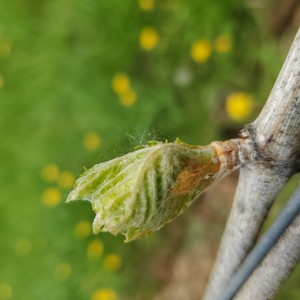
On February 4, 2023 temperatures dropped to -25C in the Annapolis Valley, a polar vortex event in an otherwise mild winter. See CBC news video
We knew that our Gaspereau vineyard would be impacted and the effects are starting to show as we proceed through budbreak. We pruned lightly and left more canes for growth and are seeing a reasonable budbreak so far. The above image is Leon Millot. Even though there are shoots emerging we stll don't know how much crop we will get for 2023...and expect it to be less. Same for L'Acadie blanc.
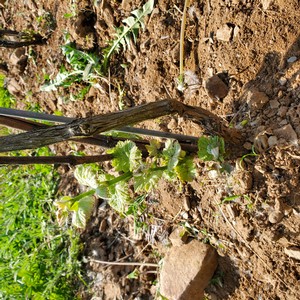
The next image is Chardonnay that is only showing shoots at the trunk so far. Pinot noir is similar. Fingers crossed that there will be some viable buds on the upper canes. It's expected that our only goal with these two sensitive varieites will be to grow new trunks for future years and skip cropping grapes this year.
Guilt free Bubbly

Thanks Onboard Hospitality for featuring our Gaspereau winery in a sustainability article about international sparkling wine and our organic sparkling wine and recent vegan wine certification. Read Guilt Free Bubbly
Vegan, organic, geothermal, natural - L'Acadie Vineyards keeps it green - via Saltwire by Bill Spurr
Great article about our environmental efforts to produce organic and vegan wines!
"L’Acadie’s supplier of corks for its bottles of sparkling and still wines has calculated that the Gaspereau Valley winery was responsible for the sequestration of “a whopping” 10 tonnes of carbon dioxide in 2022 because it uses only natural cork."
Full story on Saltwire by Bill Spurr
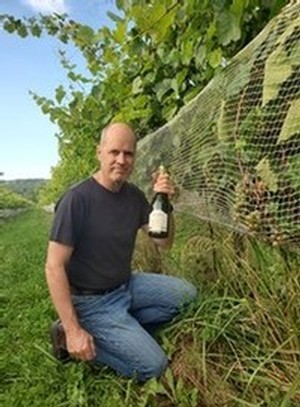
Environmental benefits of using cork
Honoured to receive this award from Amorim Cork, our cork supplier. A whopping 10 tonnes of carbon dioxide sequestered from our use of cork in 2022!
We are proud to give you this honor and please feel free to share with your team or customers your carbon retention number! This number has been independently validated by Pricewaterhouse Coopers and/or Ernest and Young. The findings, are the only ones to date that underwent a multi-closure comparative peer review, indicating when considering sequestration by the ecosystem made feasible by the cyclic extraction of cork, a retention capacity up to 288 grams of CO2 is associated with every natural cork stopper and as much as 562 grams with a sparkling wine stopper, in stark contrast to the CO2 emissions to each plastic stopper (up to 14.8 g/sealant) and to aluminum caps (up to 37.2 g/cap). To find out more about the sustainability studies and on going efforts Amorim is making on your behalf please visit the following link here.
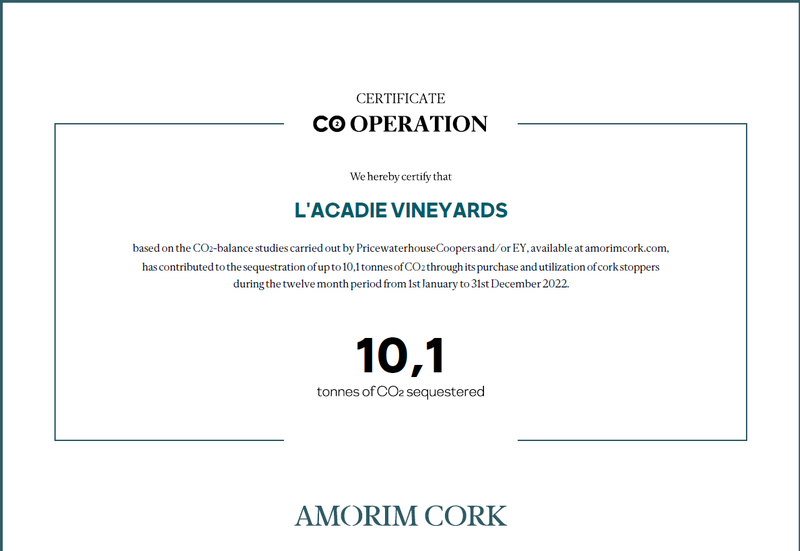
World Animal Day October 4
<iframe width="560" height="315" src="https://www.youtube.com/embed/Zh0N38Hnwsg" title="YouTube video player" frameborder="0" allow="accelerometer; autoplay; clipboard-write; encrypted-media; gyroscope; picture-in-picture; web-share" allowfullscreen></iframe>

